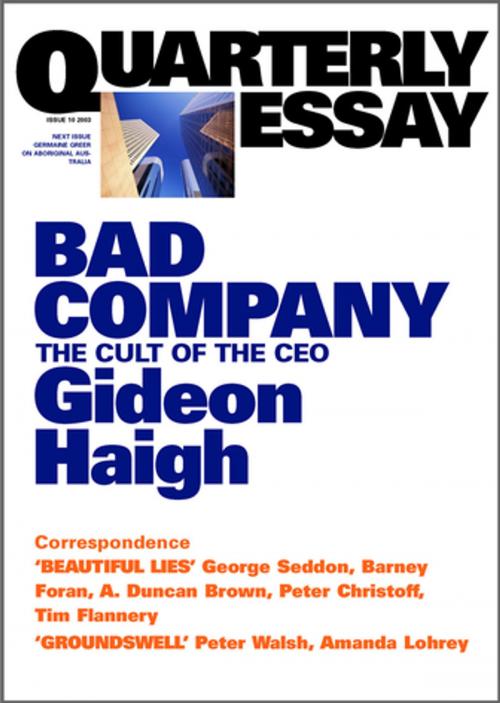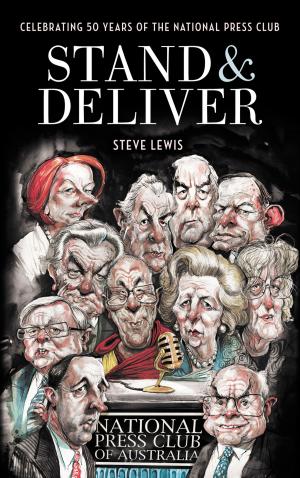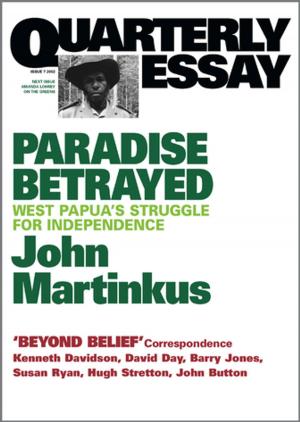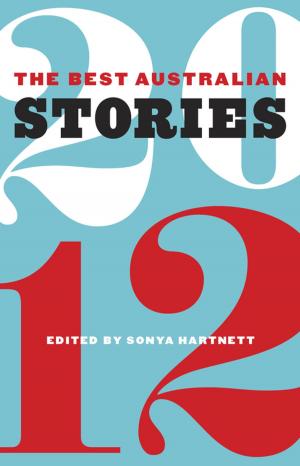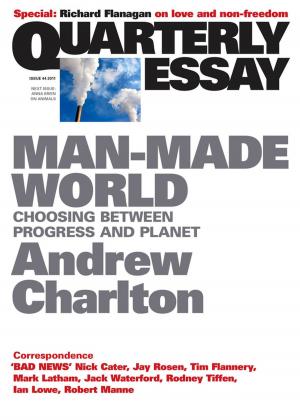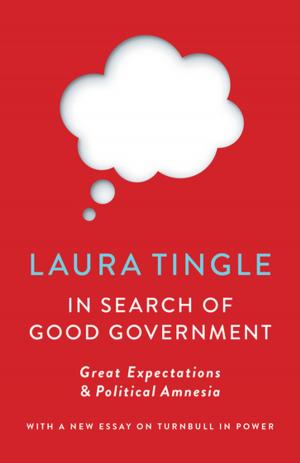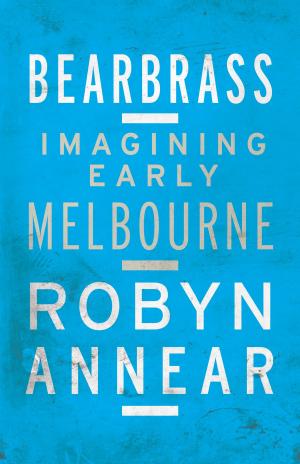Quarterly Essay 10 Bad Company
The Cult of the CEO
Business & Finance, Management & Leadership, Leadership| Author: | Gideon Haigh | ISBN: | 9781921825095 |
| Publisher: | Schwartz Publishing Pty. Ltd | Publication: | June 1, 2003 |
| Imprint: | Quarterly Essay | Language: | English |
| Author: | Gideon Haigh |
| ISBN: | 9781921825095 |
| Publisher: | Schwartz Publishing Pty. Ltd |
| Publication: | June 1, 2003 |
| Imprint: | Quarterly Essay |
| Language: | English |
In Bad Company Gideon Haigh scrutinises the way we have turned CEOs into tin gods. Is moral outrage the appropriate response to the collapses of Enron or HIH or are we all implicated in a crazy system? Haigh argues that the attempt to create great entrepreneurs of the new caste of CEOs by giving them shares is doomed to failure and inherently absurd. In a tough-minded, vigorous demolition job on the culture that produced the cult of the CEO, Haigh writes a mini-history of business and shows how the classic traditions of capitalism are mocked by the managerialism of the present.
‘The making of the modern CEO has been a story of more: more power, more discretion, more ownership, more money, more demands, more expectations and, above all, more illusions. More, as so often, has brought less …’ —Gideon Haigh, Bad Company
‘The world where the CEO is deemed to be a 'genius' at least equal to a great actor or a great sportsman is a world in which … Gideon Haigh refuses to believe.’ —Peter Craven
‘Of all the extraordinary corporate stories of the 1990s, none has been more powerful than what Gideon Haigh wants to call the cult of the CEO.’ —Sydney Morning Herald
‘Haigh should be showered with blessings for producing a book which not only says boo to these geese, but has the figures and the historical perspective to back itself up. There’s even some good business advise in there.’ —Nicholas Lezard, the Guardian
‘A cogent and elegant argument.’ —Business Review Weekly
Gideon Haigh has worked as a journalist for the Bulletin, the Guardian, the Australian, the Times and the Monthly. As an author he has written books on business, including Quarterly Essay 10: Bad Company – The Cult of the CEO, The Battle for BHP and One of a Kind: The Story of Bankers Trust Australia 1969–1999, and on cricket: Silent Revolutions, Game for Anything, The Green and Golden Age.
‘The making of the modern CEO has been a story of more: more power, more discretion, more ownership, more money, more demands, more expectations and, above all, more illusions. More, as so often, has brought less …’ —Gideon Haigh, Bad Company
‘The world where the CEO is deemed to be a 'genius' at least equal to a great actor or a great sportsman is a world in which … Gideon Haigh refuses to believe.’ —Peter Craven
‘Of all the extraordinary corporate stories of the 1990s, none has been more powerful than what Gideon Haigh wants to call the cult of the CEO.’ —Sydney Morning Herald
‘Haigh should be showered with blessings for producing a book which not only says boo to these geese, but has the figures and the historical perspective to back itself up. There’s even some good business advise in there.’ —Nicholas Lezard, the Guardian
‘A cogent and elegant argument.’ —Business Review Weekly
Gideon Haigh has worked as a journalist for the Bulletin, the Guardian, the Australian, the Times and the Monthly. As an author he has written books on business, including Quarterly Essay 10: Bad Company – The Cult of the CEO, The Battle for BHP and One of a Kind: The Story of Bankers Trust Australia 1969–1999, and on cricket: Silent Revolutions, Game for Anything, The Green and Golden Age.
In Bad Company Gideon Haigh scrutinises the way we have turned CEOs into tin gods. Is moral outrage the appropriate response to the collapses of Enron or HIH or are we all implicated in a crazy system? Haigh argues that the attempt to create great entrepreneurs of the new caste of CEOs by giving them shares is doomed to failure and inherently absurd. In a tough-minded, vigorous demolition job on the culture that produced the cult of the CEO, Haigh writes a mini-history of business and shows how the classic traditions of capitalism are mocked by the managerialism of the present.
‘The making of the modern CEO has been a story of more: more power, more discretion, more ownership, more money, more demands, more expectations and, above all, more illusions. More, as so often, has brought less …’ —Gideon Haigh, Bad Company
‘The world where the CEO is deemed to be a 'genius' at least equal to a great actor or a great sportsman is a world in which … Gideon Haigh refuses to believe.’ —Peter Craven
‘Of all the extraordinary corporate stories of the 1990s, none has been more powerful than what Gideon Haigh wants to call the cult of the CEO.’ —Sydney Morning Herald
‘Haigh should be showered with blessings for producing a book which not only says boo to these geese, but has the figures and the historical perspective to back itself up. There’s even some good business advise in there.’ —Nicholas Lezard, the Guardian
‘A cogent and elegant argument.’ —Business Review Weekly
Gideon Haigh has worked as a journalist for the Bulletin, the Guardian, the Australian, the Times and the Monthly. As an author he has written books on business, including Quarterly Essay 10: Bad Company – The Cult of the CEO, The Battle for BHP and One of a Kind: The Story of Bankers Trust Australia 1969–1999, and on cricket: Silent Revolutions, Game for Anything, The Green and Golden Age.
‘The making of the modern CEO has been a story of more: more power, more discretion, more ownership, more money, more demands, more expectations and, above all, more illusions. More, as so often, has brought less …’ —Gideon Haigh, Bad Company
‘The world where the CEO is deemed to be a 'genius' at least equal to a great actor or a great sportsman is a world in which … Gideon Haigh refuses to believe.’ —Peter Craven
‘Of all the extraordinary corporate stories of the 1990s, none has been more powerful than what Gideon Haigh wants to call the cult of the CEO.’ —Sydney Morning Herald
‘Haigh should be showered with blessings for producing a book which not only says boo to these geese, but has the figures and the historical perspective to back itself up. There’s even some good business advise in there.’ —Nicholas Lezard, the Guardian
‘A cogent and elegant argument.’ —Business Review Weekly
Gideon Haigh has worked as a journalist for the Bulletin, the Guardian, the Australian, the Times and the Monthly. As an author he has written books on business, including Quarterly Essay 10: Bad Company – The Cult of the CEO, The Battle for BHP and One of a Kind: The Story of Bankers Trust Australia 1969–1999, and on cricket: Silent Revolutions, Game for Anything, The Green and Golden Age.
